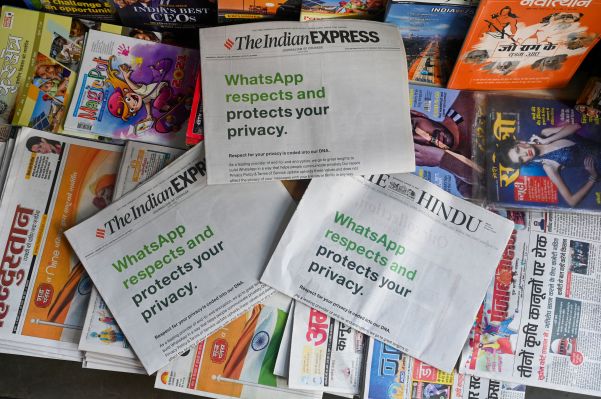

WhatsApp is facing a legal challenge in India, its biggest market, after a petition was filed Thursday before Delhi High Court over the upcoming change in the Facebook-owned app’s data-sharing policy.
The petition alleges the new terms that WhatsApp requires its roughly 450 million users in the country to accept is a violation of their fundamental rights to privacy and poses a threat to national security.
Through an in-app alert, WhatsApp has asked users in recent days to agree to new terms of conditions that grants the app the consent to share with Facebook some personal data about them, such as their phone number and location.
Users will have to agree to these terms by February 8 if they wish to continue using the app, the alert said. The change has been mischaracterized by many as their personal communication being compromised, which WhatsApp clarified this week was not the case.
The Facebook-owned service, which serves over 2 billion users worldwide, said private conversations between people remain just as private as before. Facebook has also bought front-page newspaper ads in several leading Indian dailies this week to explain the change, which it first outlined last year.
The petitioner said the new terms grant WhatsApp a “360-degree profile into a person’s online activity” without any “government oversight.”
“WhatsApp has made a mockery out of our fundamental right to privacy while discharging a public function in India, besides jeopardizing the National Security of the country by sharing, transmitting and storing the users data in some [other] country and that data, in turn, will be governed by the laws of that foreign country,” the petition, which is expected to be heard Friday, reads.
Several high-profile startup founders and executives in India have also criticized WhatsApp’s new data-sharing policy. Vijay Shekhar Sharma, founder and chief executive of India’s most valuable startup Paytm, accused WhatsApp of operating with double standards, pointing to how the new change was not affecting the app’s users in Europe.
The outrage over the new change has resulted in tens of millions of users exploring other communication apps such as Signal and Telegram in recent days. In an interview with TechCrunch earlier this week, Signal co-founder and chairman executive Brian Acton said “the smallest of events helped trigger the largest of outcomes. We’re also excited that we are having conversations about online privacy and digital safety and people are turning to Signal as the answer to those questions.”

